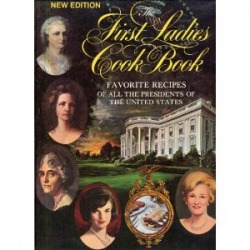My mother made me grilled cheese sandwiches and Campbell's tomato soup, and the meal still seems like the ultimate comfort food. In theory, I love Campbell's tomato soup. But I can't remember the last time I bought a can of Campbell's or any other type of canned soup. I detest the metallic can flavor, most canned soups have questionable ingredients (hello, high fructose corn syrup), and I consider making soups from scratch a form of leisure entertainment.
Enter the flu and my friend Cornelius, who brought me a can of Amy's Thai Coconut Soup, claiming it made him feel better the last time he was sick. Cornelius has pretty good taste in sustenance (his devotion to Chock Full o' Nuts Coffee aside) and the soup is organic and made of whole, recognizable ingredients, so I approached the can with a relatively open mind. (Plus I was really too sick to have any desire to cook anything from scratch.)
I found the coconut broth tasty--light, aromatic, pleasantly spiced, and remarkably free of any "can" flavor. It tasted even better when I added a lime, a teaspoon of chili oil, and a few leaves of cilantro, but that's true about homemade Tom Kha too. The soup contains shitaki mushrooms, sweet potatoes, green beans, shallots, tofu, and even kaffir lime leaves. The mushrooms were good (and I don't even like shitakes), and the tofu was chewy, but the vegetables were predictably mushy--the carrots, in large slices, being the worst offenders. That said, I ate the contents of the can in one sitting. Cornelius was right--I did feel better.
Overall, a good product, and at 280 calories for a whole can (2 servings) a pretty healthy choice.


 RSS Feed
RSS Feed